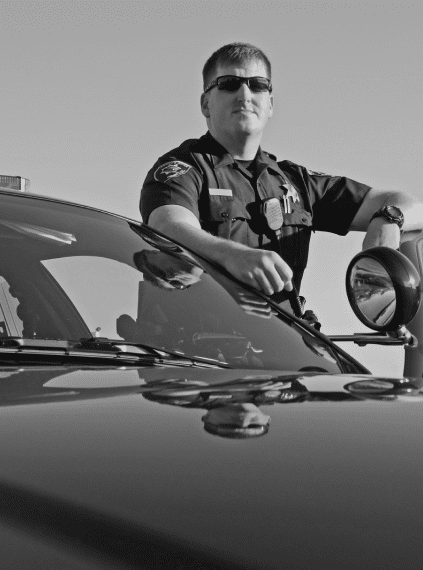How To Report Police Misconduct
Reporting police misconduct can hold officers and departments accountable when they violate state and federal laws when interacting with citizens. There are several steps to report misconduct properly and hold the police accountable. Learn those steps and how you can pursue a civil lawsuit if the police have violated your rights. The Police Brutality Center can connect you with an experienced lawyer so you can start your journey to justice.
Were you or a loved one a victim of police brutality?
Attorneys that work with Police Brutality Center may be able to assist you.
"*" indicates required fields
Content Last Updated: March 3, 2025
Police misconduct occurs when officers violate people’s civil rights under state and federal laws while acting in their official capacity. While most officers uphold their duty to protect citizens, some abuse their authority by using excessive force or otherwise taking advantage of their positions.
Citizens must report police misconduct to hold officers—and, in some cases, departments—accountable for misconduct. Knowing how to report misconduct and the steps you can take to further protect the community from harm are critical to ensure better policing and keeping everyone safe. If you wish to take legal action based on police misconduct, the Police Brutality Center can help you find a lawyer to discuss your case.
How To Report Police Misconduct
The process for reporting police misconduct varies from state to state. Your local police department may have its own method for reporting complaints. Check the relevant police department’s website for instructions on how to file complaints.

Gather Evidence
Write down everything you can remember about your interaction with the officer. Some key details to note include the following:
- Physical descriptions of the officers involved
- The officers’ badge numbers
- Police car numbers
- A chronological statement of what happened
- The location and time of day of the incident
Photos and videos are particularly helpful pieces of evidence. In addition, get contact information and statements from any witnesses to the incident. Ask them if they are willing to report what they saw or if they have pictures or videos.

File Your Police Misconduct Report
The process for reporting police misconduct varies depending on where the incident occurred. You may have to file a report with the department, the chief of police only, to a civilian review board, or another organization. Keep a copy of the report for your records. Such documentation will help preserve evidence if the police say they never received your misconduct complaint.
The police department’s website may include information about how to file a complaint against a police officer and report police brutality. You may have to fill out a specific form. Some jurisdictions don’t have an online form, and you must visit the department to file a complaint. Others take them by phone. If you are afraid to report police misconduct, an attorney can advise you on how to file.
You must be very specific in your complaint. For example, if your complaint is against a particular officer, you must include all your identifying information and a detailed description of the misconduct.
If you have a general police misconduct complaint, be as detailed as possible about the policy or procedure you deem misconduct. For example, you may notice police consistently stop and frisk young men of color in your neighborhood without probable cause. Examine the complaint process for that department to see if it allows you to make a general complaint. If it does not, consider addressing your complaint to the mayor’s office or city council.

Filing Additional Reports
File your complaint with as many agencies as will accept it. This shows how seriously you take the misconduct you allege and puts more parties on notice that you want accountability. For example, there may be a complaint form for your local police department and a way to file a complaint with a state or federal agency.
For instance, several federal laws address police misconduct, including Title VI of the Civil Rights Act of 1964 and the Police Misconduct Provision under Title 34 U.S.C. § 12601. Thus, you can file a complaint with the U.S. Department of Justice’s Civil Rights Division.

Investigation
It can take months for an agency to investigate a police misconduct report thoroughly. The agency where you filed your complaints may contact you to ask questions or for more information. Answer all of their questions so there is an accurate account of the incident.
While it may seem like reporting police misconduct to a police department will do no good, it is a critical first step in demanding accountability. A history of complaints with no changes in training or policy can help a victim of police misconduct win their case.
What Are the Results of Reporting Police Misconduct?
A police misconduct complaint can result in departmental actions against an officer, criminal prosecutions for police misconduct, and civil lawsuits.
There is no guarantee a department will discipline an officer or change its policies based on a misconduct complaint. But citizens must continue to use the complaint process. It provides a written record of potential misconduct. It also contributes to a body of evidence when there are future complaints against departments.
A prosecutor decides whether a police misconduct complaint results in criminal charges. Citizens can make their case for prosecution by bringing notice of the complaint to the appropriate district attorney, mayor, or others in power.
Online petitions, contacting the district attorney’s office directly through crowd phone calls and emails, and peaceful protests are some ways citizens can make it clear they believe criminal charges are appropriate when police officers violate their rights.
If they violate your civil rights, federal law under 42 U.S.C. § 1983 allows you to file a civil lawsuit against officers and departments. Some notable cases of settlements in police misconduct cases include the following:
- New Haven, CT, settled for $45 million with Richard "Randy" Cox, who was paralyzed following an accident during transport. Officers ignored his pleas for help while in the van, transported him to a cell after he was injured, and waited there for an ambulance.
- Minneapolis settled for $27 million with the family of George Floyd after police officers killed him by kneeling on his neck while he cried for help.
- Louisville settled for $12 million with the family of Breonna Taylor after police officers shot and killed her in her apartment while serving a no-knock warrant.
- Camden County, NJ, settled for $10 million with Xavier Ingram after police beat him while he was handcuffed, leaving him paralyzed.
The Breonna Taylor settlement was significant because it included an agreement to reform Louisville police procedures.
Unfortunately, many police misconduct complaints result in no or only partial justice. Often, cities or departments settle but take no action against the involved officers. For example, no charges were filed against the officers in the Xavier Ingram case.
A special prosecutor also decided not to criminally charge Atlanta police officers in the 2020 killing of Rayshard Brooks. In that case, Brooks ran away with a police officer’s taser after a scuffle with police in a Wendy’s parking lot. During the ensuing chase, the police allege he turned around and aimed the taser at them. One officer shot Mr. Brooks twice in the back. That officer was fired and charged with felony murder, aggravated assault, and violation of oath. However, those charges were dropped, and the department reinstated him.
Additional Steps You Can Take
In addition to filing complaints, there are several other steps you can take to bring cases to light and hold the police accountable for misconduct, including the following:
- Organize in your community.
- Vote out district attorneys or others who fail to hold the police accountable.
- Contact your mayor, city council, or representatives to call for police reform.
- Stage peaceful protests.
- Write letters to the editor.
- Seek redress at the state or federal level.
The process for filing a lawsuit based on police misconduct varies from state to state. An experienced civil rights attorney can advise you on making claims against police officers or suing police departments.

Get Legal Help From the Police Brutality Center
Citizens have the right to expect the police to follow the law. When they do not, it is essential to file complaints. Sometimes, you must take steps beyond filing complaints to pursue justice.
If you or a loved one were the victims of police misconduct, get legal help with the assistance of the Police Brutality Center. We will connect you with an experienced civil rights attorney in your area who can answer questions about your case and advise you on the next steps.
Get Legal Help From the Police Brutality Center
Citizens have the right to expect the police to follow the law. When they do not, it is essential to file complaints. Sometimes, you must take steps beyond filing complaints to pursue justice.
If you or a loved one were the victims of police misconduct, get legal help with the assistance of the Police Brutality Center. We will connect you with an experienced civil rights attorney in your area who can answer questions about your case and advise you on the next steps.

